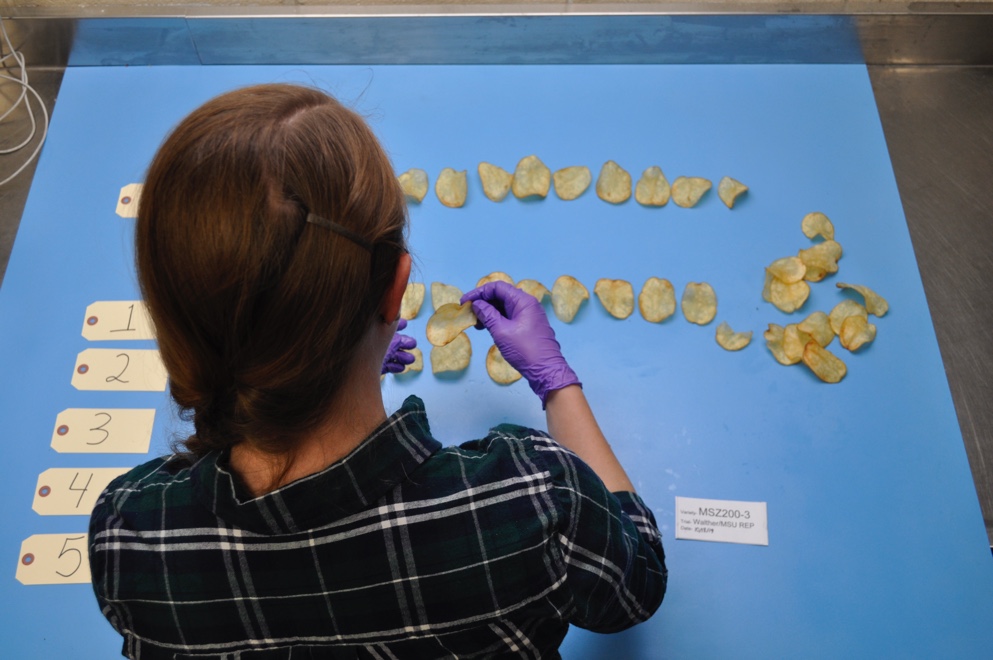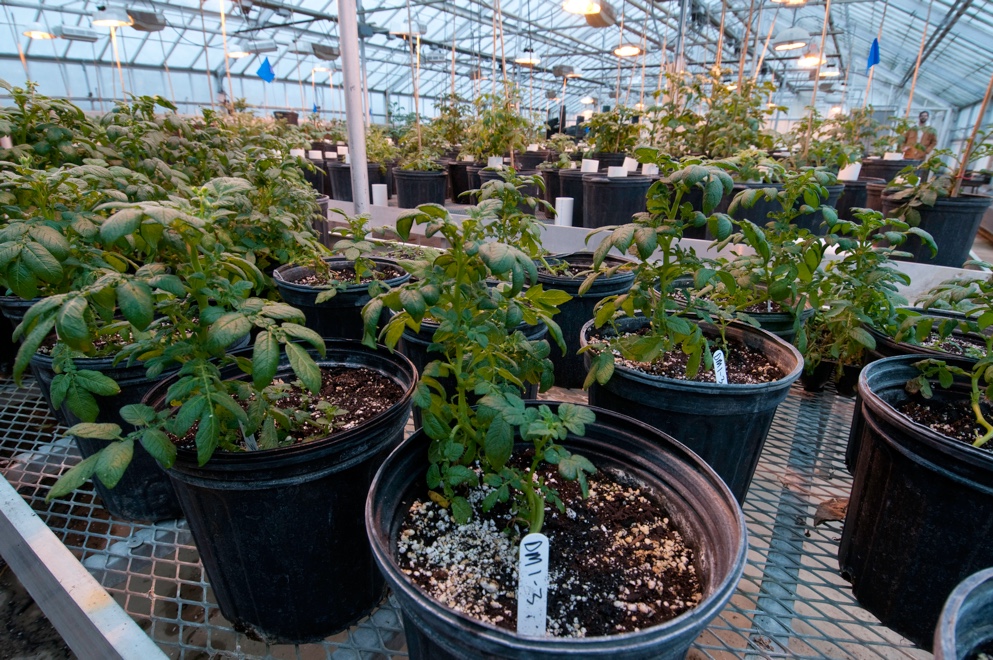Michigan is the largest producer of potatoes grown for the potato chip industry, and more than 70% of the state’s annual 1.7 billion pounds of potatoes go toward chip production.
The booming industry has not come about by accident or coincidence. A concerted effort made by industry stakeholders, spearheaded by Michigan State University Extension and MSU AgBioResearch, and coordinated by the Michigan Potato Industry Commission, has built a partnership that is growing the industry.
Finding the best spuds
Before potatoes get turned into chips, a lot of work is done to pick the best varieties for the job. Chris Long, MSU Extension potato specialist, leads the Potato Outreach Program, which supports potato growers by conducting on-farm research and demonstration trials on all aspects of potato production. Long works with local and national breeding programs to identify superior varieties by first testing them on farms and then taking the top performers to processors.“To me, the relationship is like the spokes of a wheel,” Long says about the Potato Outreach Program. “The MPIC is a tremendous funder of my research, but they also set priorities and the bull’s eye for what we are trying to accomplish. AgBioResearch provides the infrastructure, and I am like a bridge builder between these research priorities, researchers at MSU and the growers.”
MSU and the potato commission work together to promote and support the state’s potato industry. MPIC provides funding for research and specialist positions at MSU and also works with stakeholder groups to generate funding through programs such as Project GREEEN.


